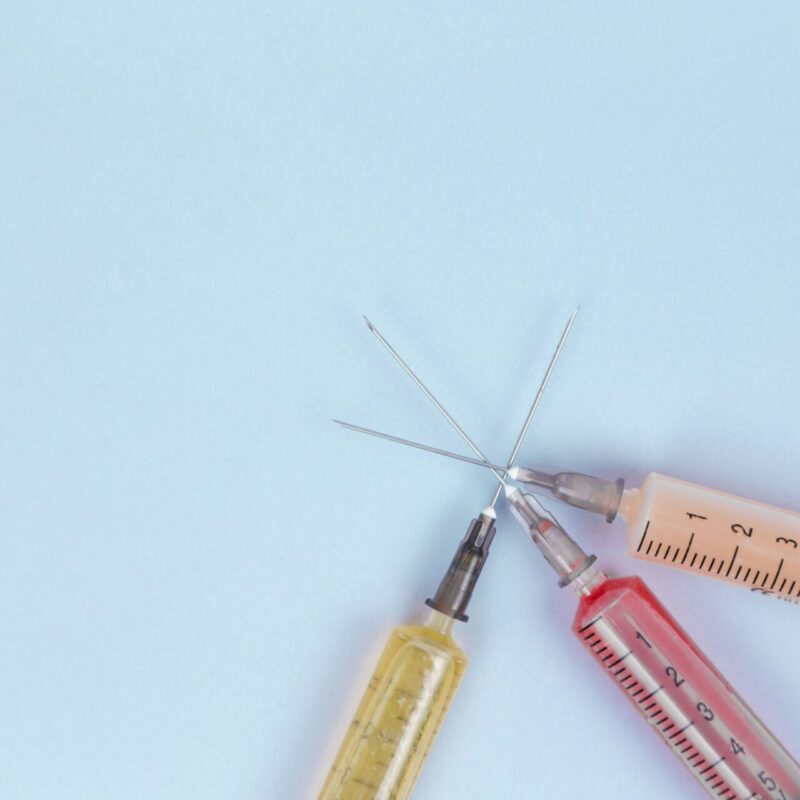Antibiotic resistance in the Sejm

On June 27 this year, together with FF4C – Tarnów Rospuda Association, Compassion in World Farming Poland and experts Dr. Marzena Cypryanska – Nezlek, Dr. Anna Kozajda, we took part in a meeting of the Subcommittee on Food Safety, Elimination of Unfair Practices in the Food Trade and Direct Sale and Retail Trade of Products Produced on Farms (RRW04S). The topic of the meeting was the use of antibiotics in animal agriculture.
Green REV Institute: „We would like to ask the control bodies of the Supreme Audit Office to take action, to control the use of antibiotics in the animal agriculture sector, food production. Already at the beginning of this year, together with the Chair of the Subcommittee, MP Alicja Łepkowska – Gołaś, we drew the attention of the NIK to the need to cover the area of the country in the context of the intensive expansion of large-scale farms and animal production in Poland.
Some facts in the context of food safety about the protection of human health and life.
- In Poland in 2019, there were 5,600 deaths attributed to antimicrobial resistance and 24,100 deaths related to antimicrobial resistance. The number of AMR-related deaths in Poland is higher than the number of deaths from neurological diseases, digestive diseases, diabetes and kidney diseases, respiratory infections and tuberculosis, and chronic respiratory diseases.Antimicrobial resistance (AMR) is one of the biggest global threats to public health and development. It is estimated that AMR was directly responsible for 1.27 million deaths worldwide in 2019 and contributed to 4.95 million deaths. In July 2022. The Commission, together with Member States, identified AMR as one of the three most serious health threats in the EU It is estimated that more than 35,000 people in the EU/EEA die each year as a direct result of infection with antibiotic-resistant bacteria.
- Antimicrobial resistance affects countries in all regions and at all income levels. Its factors and consequences are compounded by poverty and inequality – at the previous High Commission meeting we talked about food poverty and antibiotic resistance is a crossroads of exclusion of those at risk of food poverty;
In addition to death and disability, antimicrobial resistance has significant economic costs. The World Bank estimates that antimicrobial resistance could result in additional healthcare costs of $1 trillion by 2050 and gross domestic product (GDP) losses of $1 trillion to $3.4 trillion annually by 2030. - Poland is using more and more antibiotics for animal production when the rest of the European Union countries are cutting back. In 2022, Poland’s antibiotic consumption per kilogram of body weight (mg/CPU), the most precise measure of drug use, was an astronomical 196 mg, up 55 percent from 2011 levels. Meanwhile, in Europe’s largest meat producer, Spain, consumption was 127 mg, down as much as 65 percent. The Netherlands started from a similar level of antibiotic consumption as Poland (113 mg), but reduced it by 67 percent, to 37 mg.
- In 2017. The Supreme Audit Office inspected the use of antibiotics in animal agriculture in Lubuskie Province. „The results of the audit by the Supreme Audit Office indicate that antibiotics are widely used in animal farms. They were used by as many as 70 percent of animal breeders in Lubuskie Province covered by water and feed monitoring. In turkey and slaughter chicken farms, the percentage was even higher, exceeding 80 percent.
- In recent months, studies of chicken meat from Lidl, an investigation by British journalists into chicken meat from Poland have indicated that we have a very serious problem. This problem needs to be addressed systemically by the Supreme Audit Office and inspection proceedings throughout the country, which should involve farms but also supermarkets, discounters and chains, which in the current situation are responsible for more than 70 percent of our purchases. We need to protect consumers, people living in rural areas. This is an issue of danger and risk to public health. „
Credit: unsplash

